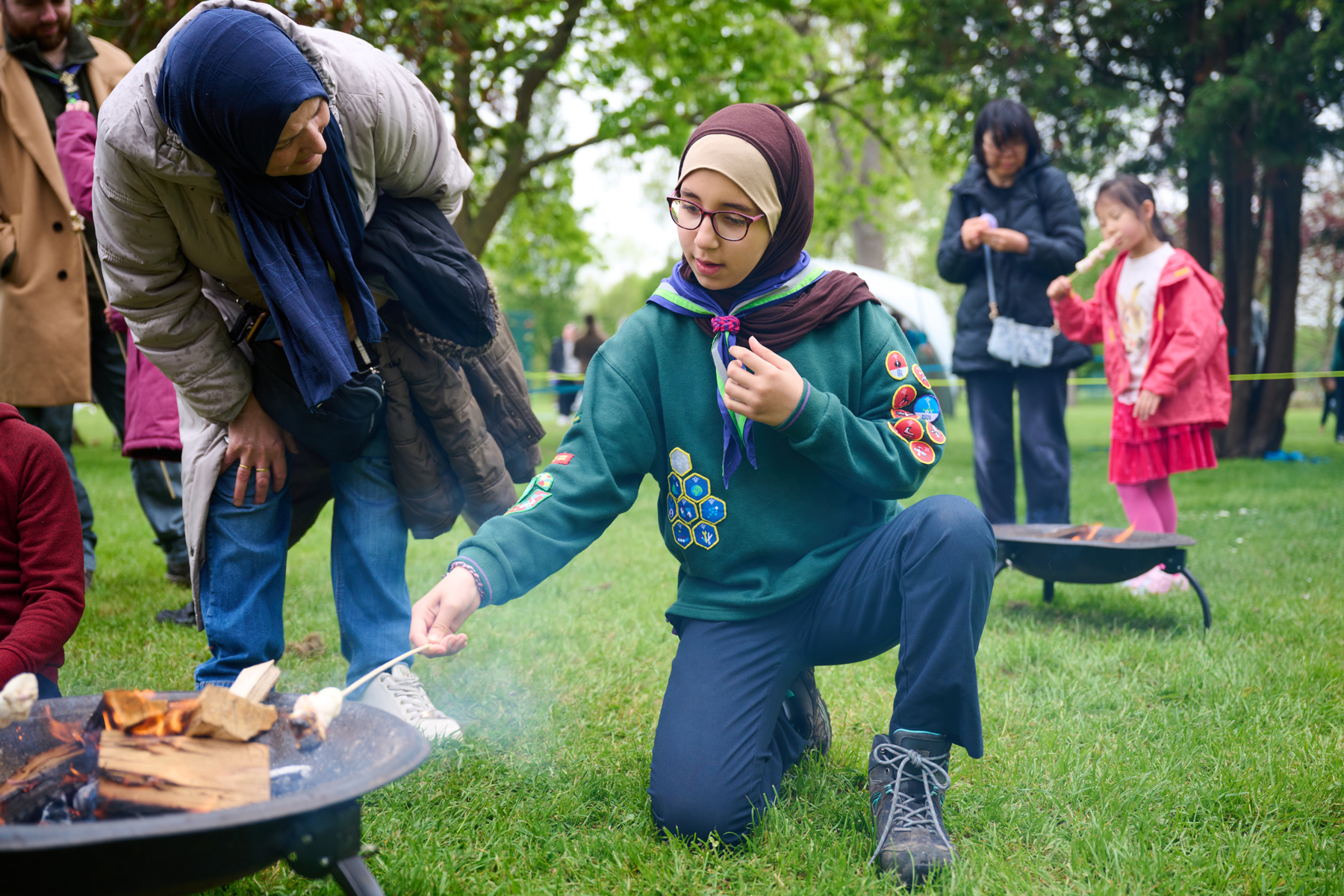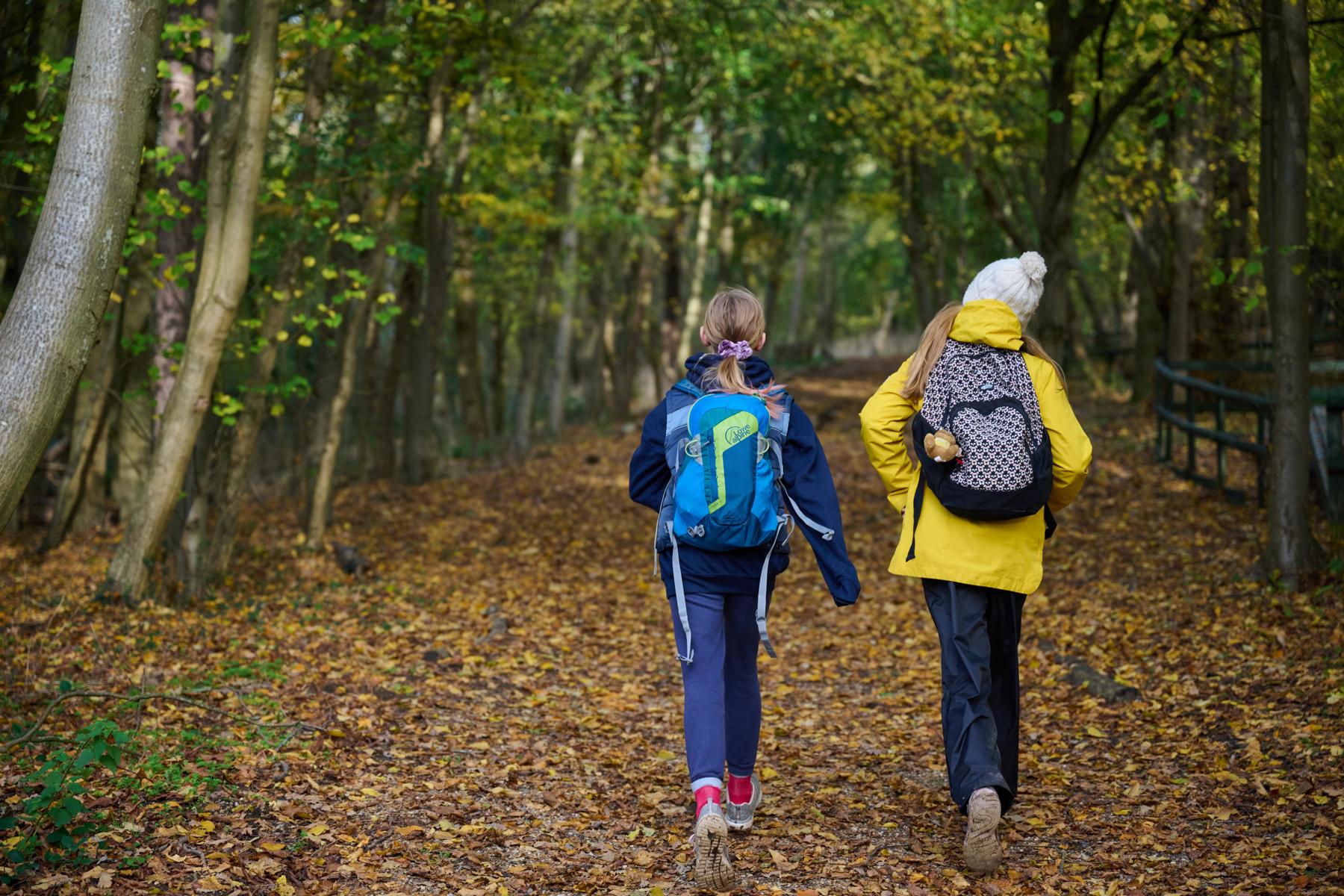Planning individual support
Find out about creating individual support plans alongside young people and volunteers with additional needs.
Quick links

Planning individual support for young people
At Scouts, we have a duty to make reasonable adjustments to support the participation of young people with additional needs. Developing a positive relationship and working in partnership with young people and parents or carers is key to including people with additional needs in Scouts.
Scouts uses the social model of disability. This means we believe that people are disabled by society, so it's the responsibility of organisations like Scouts to make changes to remove or reduce that disadvantage.
At Scouts, we use a strengths-based approach when assessing support needs and making reasonable adjustments. This means that as well as the individual’s needs or challenges, we consider their strengths and the support they may already have. Rather than focusing on a diagnosis someone has or is waiting to receive, focus instead on the young person and how you can support them to access, enjoy and develop in Scouts.
When a young person with additional needs or disabilities joins Scouts, the relevant volunteer should hold an initial meeting with the young person (if appropriate) and their parent or carer, or someone who knows the young person well (e.g. Support Worker, Learning Support Assistant or SENDCO/SENCO). This volunteer could be the Section Team Leader, a designated member of the section volunteer team, or a Group Lead Volunteer. This meeting will help the volunteer team to work out the young person's individual needs and plan the support needed for them to join in.
After this meeting, the volunteer should use an individual support plan to document how they’ve discussed and planned support for a young person with additional needs or disabilities. This should be shared with the relevant volunteers (in line with GDPR) and used to support programme planning and delivery. Our individual support plan template may help you.
When you're creating an individual support plan, in the first instance, a relevant volunteer should meet with the young person and their parent or carer to establish what reasonable adjustments and care provisions are required. Our guidance on working in partnership with parents and carers can help you have these conversations with young people, parents and carers.
Some volunteers may feel comfortable doing this on their own, but depending on the complexity of care or the support required they may seek advice from their County Lead Volunteer or the Support Centre.
When a young person is due to move up to the next section, it’s important that Leaders of both sections meet with parents or carers to discuss how to support the young person during the transition.
Our conversation starters and question tips offers guidance to help have a conversation with young people, parents and carers about the support needs of a young person who is joining the movement with a disability or additional need. The questions can also be used to help create a plan for a member who has a new disability or additional need which has developed during their journey in Scouts.
- Volunteer to hold an open conversation with the parent or carer and, if appropriate, the young person themselves. It may be helpful to involve someone in a local inclusion role or with expertise in this area. Make sure the meeting feels like a conversation, not an interview; it's just the starting point of an ongoing relationship.
- Document a clear and transparent record of the conversation in the individual support plan.
- Make sure all support in the individual support plan is agreed by the young person, their parents or carers, and all volunteers involved.
- If needed, document any needs on the intimate and personal care section of the individual support plan.
- [For intimate or personal care] The Nominated person or Designated Carer will need to complete all paperwork and any additional learning.
- [For intimate or personal care] The County Lead Volunteer or their designated representative must receive all documentation and agree to the individual support plan.
- The individual support plan should be reviewed on a regular basis (recommended minimum 6 months and/or when moving sections) - and updated with any learning that occurs during the provision of the plan, intimate or personal care, the developmental needs of the young person and any changes in the individuals supporting the plan.
It’s good practice to review the individual support plan after the initial meeting (for example after 4-6 weeks) and at least once every 6 months. It's a live document and it’s okay to make changes to it to make sure the young person is getting the support they need. The best care provision is led by the young person and is responsive to their changing needs.
It’s essential to identify any elements of the Scouts experience, for example programme activities, environments and routines, that might be of particular risk or concern for the young person, and plan measures to support them as part of your planning and risk assessment processes. This will differ depending on the young person’s needs.
Consider the individual needs of your group and, where relevant, include them in your risk assessment in a sensitive way. This could include:
- Identifying someone in the group with an allergy and making sure food items containing the allergen are not present during meetings.
- A young person with additional needs who has not stayed away from home before. You'd need to consider what adjustments this young person may need to support them to have a positive experience (in addition to any plans for young people who have not stayed away from home before).
It’s important to have conversations with the young person and their parents or carers to help with this.
You may also need to ask the parent or carer to attend some activities to provide extra support, for example Nights Away.
More information and guidance for risk assessments and safety planning can be found on our safety pages. There are also safeguarding tips on planning Nights Away which you may find useful.
Where the disability or additional need requires complex support, you should seek advice from your Group Lead Volunteer, relevant District Leadership Team Member or Local Inclusion Leads. You can also seek support through the Support Centre, who can direct you to the volunteer National Inclusion Team if appropriate.
Scouts is delivered by adult volunteers and isn’t a statutory provision, such as the education system. Therefore, Scouts doesn't have a statutory obligation to provide 1:1 support for a young person to access Scouts on a regular basis.
If a young person would benefit from regular 1:1 support to fully participate in Scouts, and their parent or carer is able to offer this support, it's reasonable for the Group to support this adjustment. It’d also be reasonable and reflective of our values to try to recruit an adult volunteer with the skills needed.
However, if the parent or carer cannot provide this support and the Group can’t find a suitable volunteer, it’d likely be unreasonable to expect the Group to finance a professional 1:1 carer weekly. However, local social care provision may support this. For example, if the young person receives a personal care budget it might be possible to pay for support using this. There may also be local charities and community organisations that could help fund a Support Worker. You can get more ideas for engaging with your local community in our Furthering Reach Toolkit.
Where intimate or personal care is required, further plans and checks will be needed. When you create a plan to provide intimate or personal care you can follow the same individual support plan to begin with. Make sure you're familiar with the guidance in the Intimate and Personal Care Policy.
Where parents or carers are acting as a Helper, there's no need to check their qualifications. If they're supporting their child at Scouts once a week (or more than four times in 30 days) and/or to experience a Night Away, then they'll need to become a Non Member - Needs Disclosure). This means they'll need to complete a criminal record check and be recorded on scouts.org.uk.
It may be helpful to explain to them that this role doesn’t mean they're expected to support the running of the section, and they'll be there solely to support their child. You should give them a copy of the Yellow Card and check they've read and understood it to support keeping all children and young people safe in Scouts, as well as encourage them to complete safeguarding learning.
Volunteers acting in the role of nominated person for providing intimate or personal care will need to provide evidence of their professional qualifications and learning to support their role. This will need to be verified by the County Lead Volunteer or their nominated representative before intimate or personal care can be provided.
When a young person has 1:1 support through a designated carer or a nominated volunteer, the adult volunteer should not be included in the ratios. This is because they provide personal support and are not responsible for other young people. The young person should be included in the ratios, so that leaders are still including them and have oversight of their attendance and engagement.

Planning individual support for volunteers
At Scouts, we recognise that volunteers may have additional support needs. We’ve created an individual support plan for adult volunteers to make sure their needs are understood. This will help them to have a fulfilling volunteer experience.
The volunteer’s line manager should meet with the volunteer to go through the plan and discuss any support they need for their role. Document this meeting, and any follow-ups or reviews, in the support plan. We recommend reviewing the plan every six months, or whenever there’s a change. This will help the volunteer feel supported in their role.
Top tip: Let all current volunteers and new joiners know about the individual support plan and encourage them to reach out if they’d like one. This way, you avoid making assumptions about disabilities and support needs. Remember, not all disabilities are visible.
Individual support plan: Young person
Complete the individual support plan alongside the young person and their parents or carers. Use the plan to document the young person's needs and how your team will support them at Scouts.
Take a look at our template to see what a completed individual support plan might look like.
Download our individual support plan for young peopleIndividual support plan: Volunteer
Complete the individual support plan alongside the volunteer. Use the plan to document the volunteer’s needs and how the team will support them in their role.
Download our individual support plan for adult volunteersIndividual support plan feedback
At Scouts, we're always looking for ways to improve. We'd love to hear what you think about our individual support plans and supporting guidance. You can get in touch to share your thoughts using our online form.
Share your thoughts